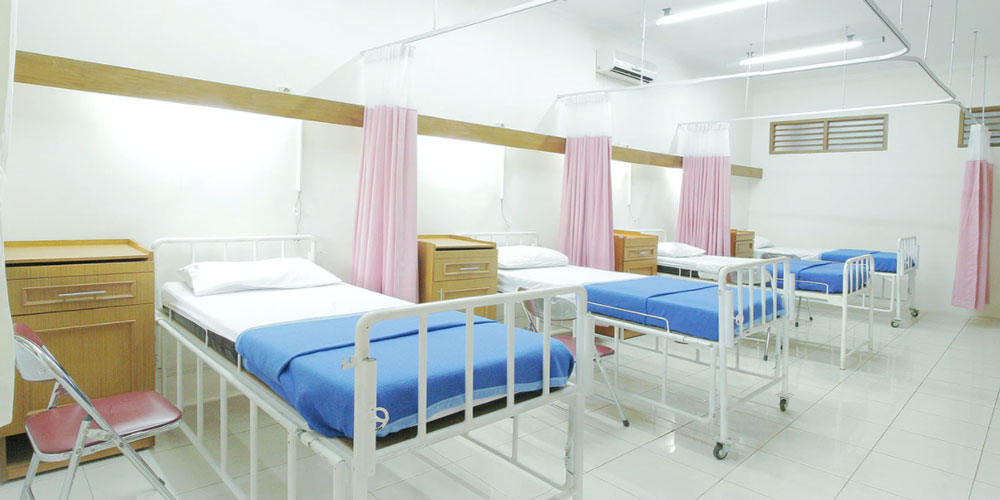
Anyone feel like we’re watching the deterioration of our healthcare system?
It’s not an encouraging message when the state government starts sending out warnings to people not to go to emergency rooms unnecessarily. The advice is always worthwhile, of course, but as the WPRI headline at the link puts it, the context right now ascribes it to “overcrowding” and “staffing shortages.”
Naturally, the state Department of Health first blames “the ongoing pandemic,” but the number of people testing positive for COVID in the hospital has been reasonably stable for a couple weeks and, in any event, isn’t shooting up faster than the health system should be able to adjust. One suspects this is more the cause of any strain of the system:
“Hospitals locally and around the country are facing shortages of certain clinical staff, such as nurses, since many frontline staff have decided to work less and some have left healthcare after the stresses of over a year of providing care during a global pandemic,” Lifespan Physician-in-Chief of Emergency Medicine Dr. Jeremiah Schuur said. “It’s important that people who do not need emergency level care be treated by their primary care provider or at an urgent care facility, so that our emergency departments can focus on the critically ill and injured, and all patients can receive the care they need in the most appropriate setting.”
One’s first thought upon reading this is that Democrat Governor Dan McKee is absolutely insane to be taking a hard line on a COVID-vaccination mandate for all healthcare workers. If there’s a shortage find some way to accommodate concerns about the vaccine rather than tell hundreds of workers they’re soon going to be locked out of their workplaces.
A second thought follows on the above blockquote. How much has a year of stresses been the result of the way we’ve responded to the virus rather than the pandemic itself? Masks, barriers, a constant drumbeat of fear from the government and news media… these things are taking a toll on everybody, let alone those at the frontlines dealing with illness every day.
And a third thought: We really should be taking this opportunity to rethink our approach to healthcare. The risk, here, is that the socialists will gain the upper hand, but perhaps it would be more accurate to say that the rate of their gains would only be accelerated.
Building our healthcare system on a foundation of insurance — which is route to socialism by means of the private sector — promises disaster. If we want people to start with their primary care doctors and keep up with their health, there has to be a visible cost to not doing so. Insurance should be for major, unexpected events, and we should pay out of pocket for just about everything else, with charity, employer benefits, and government programs to fill gaps for those who cannot do so.
Odds are reasonably good that actual costs would go down for the same level of care. Responsible people would no longer be paying for those who go straight for the most-expensive care. The broad public wouldn’t be paying for special dispensations from the government to favored groups. A large portion of insurance-related middleman expenses would evaporate.
Most importantly, we would see the costs as they go out the door for services, rather than having them skimmed off our pay with the impression that we’ve joined some sort of discount club.
Featured image by Adhy Savala on Unsplash.

Have little knowledge of Rhode Island, but Massachusetts emergency rooms are heavily favored by people on “Mass Health”. They probably don’t have a primary care guy, I’ve no idea as to Urgent Care Centers.